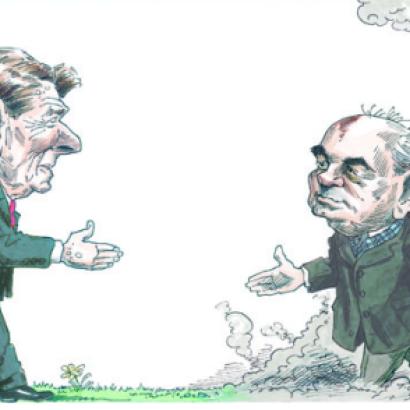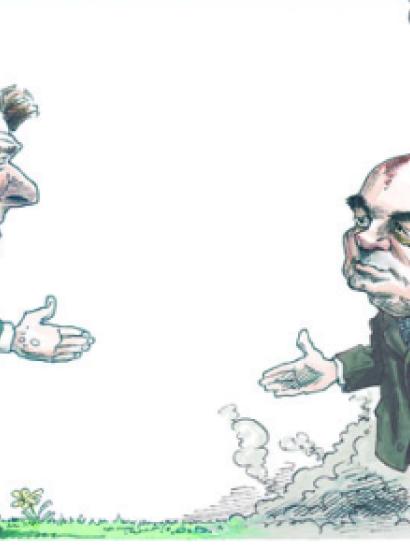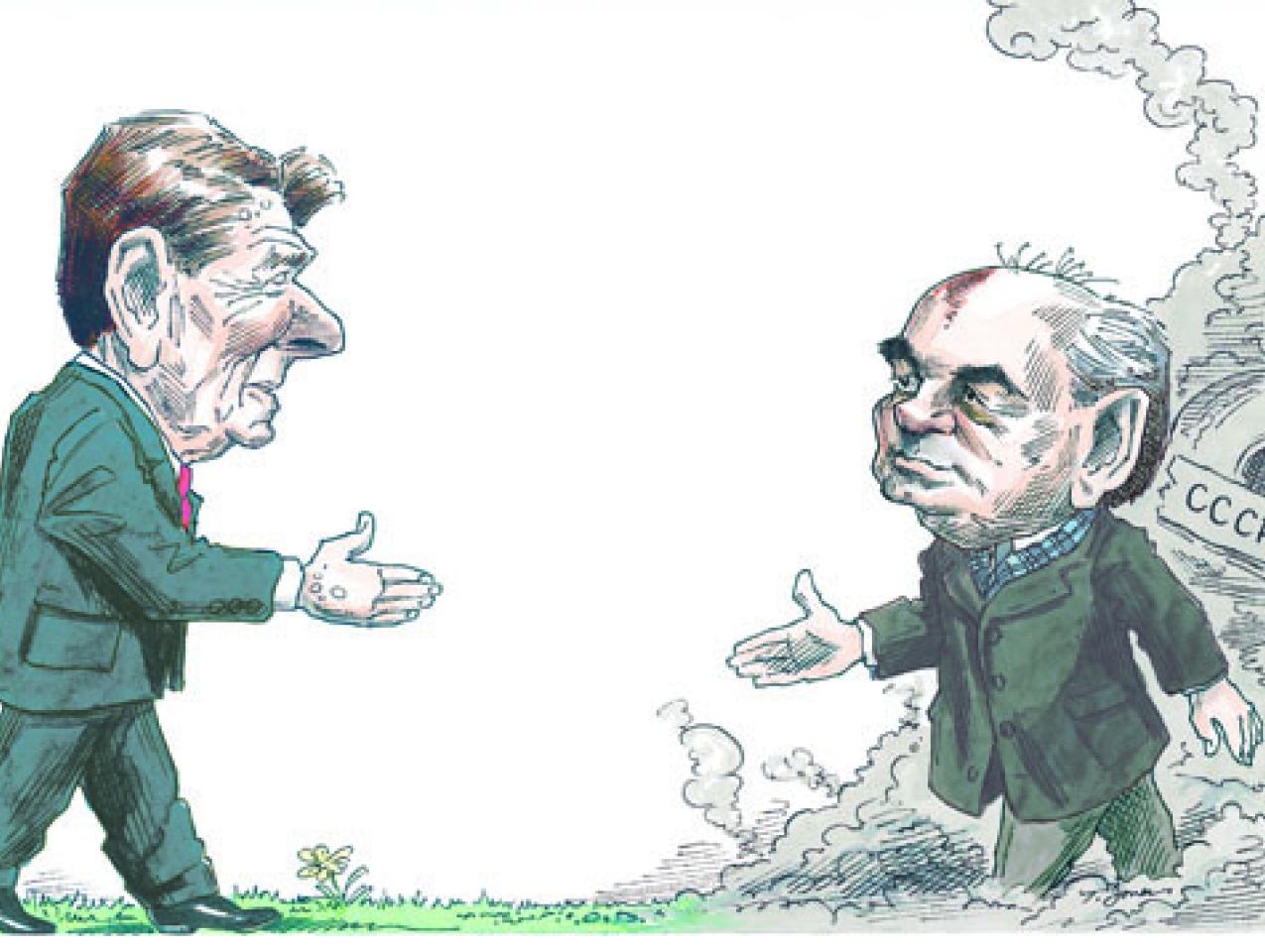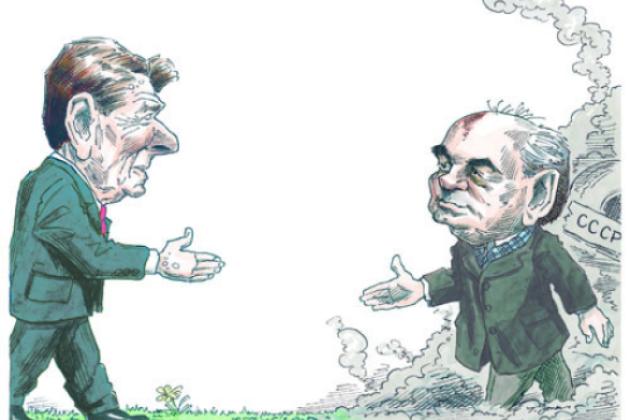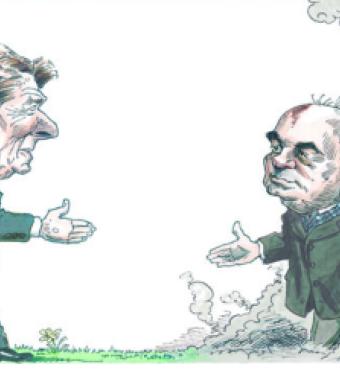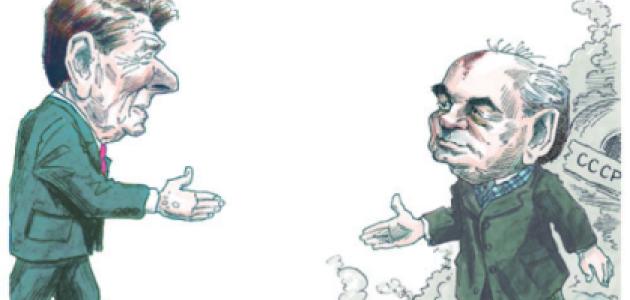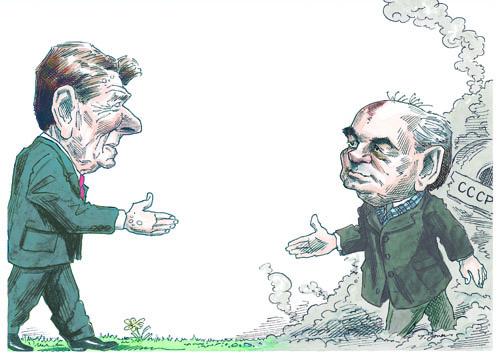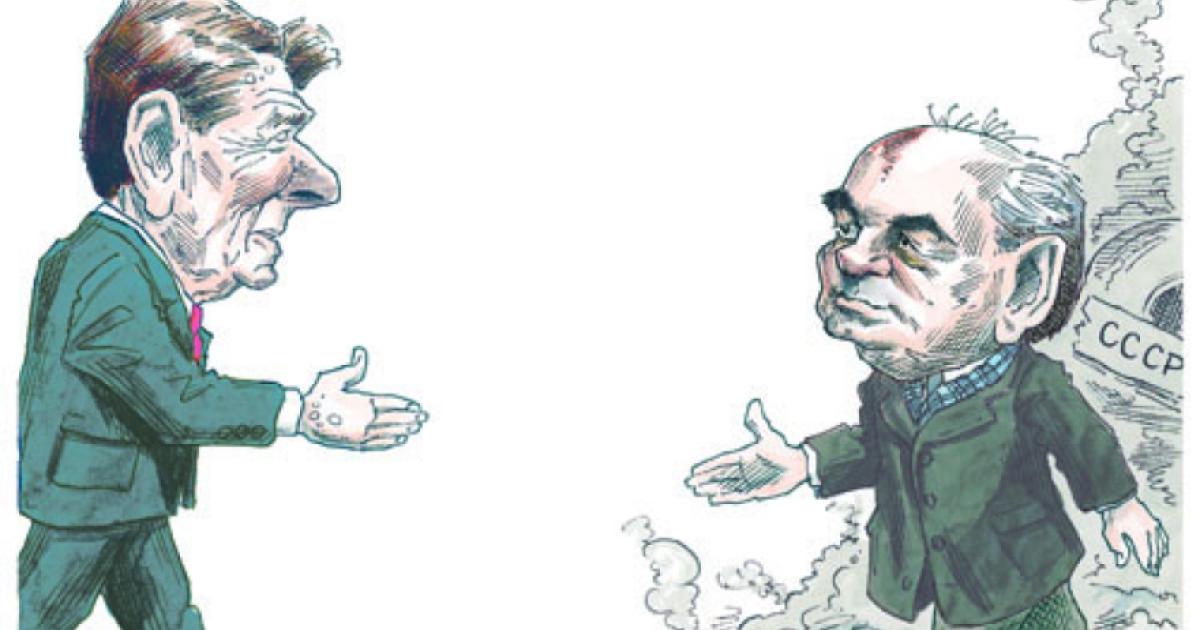- Education
- World
- US
- Contemporary
- International Affairs
- US Foreign Policy
- Campaigns & Elections
- History
- Politics, Institutions, and Public Opinion
Hoover senior fellow Robert Service discusses his new book, A Dictionary of 20th-Century Communism (Princeton University Press, 2010; Silvio Pons, co-editor), in a podcast for National Review Online.
John J. Miller, National Review Online: Professor Service, if a college student born after the end of the Cold War were to come up to you and ask, “Why are you studying communism, why is it so important, what was it?”—what would you tell them?
Robert Service: A lot of my students actually were born after the end of the Cold War, and I don’t think they find it difficult to understand that something very special happened when communism became a state phenomenon, when it started to take over governments. This was early in the twentieth century, when the one-party, one-ideology state was invented. And it was a particularly intrusive and oppressive form of state. It was reproduced on the right by Nazis and fascism. It was a particularly brutal way of running a government, running a society, and running an economy, and everybody needs to know something about it. It’s a very, very important aspect of our future capacity to sustain our liberties.
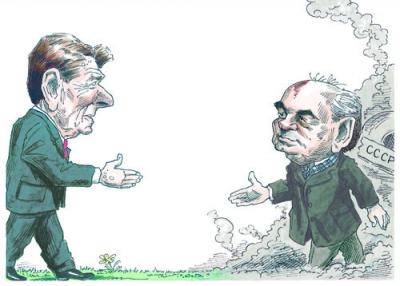
Miller: This is a big book. It’s 921 pages, has more than 400 entries, about 160 contributors. What are you trying to accomplish with A Dictionary of 20th-Century Communism?
Service: We—Silvio Pons, who is the co-editor, and I—thought there was a gap on the bookshelves for the sort of work that brought together experts on particular communist parties and particular communist societies all around the world. And so we set out to make our choice of the outstanding experts and asked them to fit into a framework, where we would look at communism as it really existed. We would get away from the histories of communism that start centuries back, and we would concentrate on communist movements, communist states, communist parties that stood a chance of getting power. We’ve used our access to specialists, not only in North America and Western Europe, but further afield. We’ve gone to China, we’ve gone to Eastern Europe, we’ve gone to Latin America, and we’ve gone to Africa and Asia. That’s been the joy of putting this book together.
Miller: Ronald Reagan once predicted that the march of freedom and democracy would leave communism on the ash heap of history. Is that true? Have we dumped communism onto the ash heap of history?
Service: Well, it’s not yet gone from China, and it’s still alive and kicking in Cuba, and there it is in North Korea still. So there are parts of the world where it still exists. In the case of China, of course, it exists in a very peculiar political and economic variance. The sort of variance that nobody before, let’s say, 1970 would have ever predicted.
But it’s unlikely, I think, that an extreme left option will be picked up by protest movements in quite the same way as happened in the former Russian empire in 1917. That doesn’t mean that there aren’t lessons to be learned. Some of the extremist ideologists and extremist movements and extremist governments in the world today might not be communist, but they have certainly picked up some of the techniques of communism. And I will go back to what I said earlier: the Russian communists invented a new way of running the state, running the government, and eventually running society—and some of these ideas were picked up by people and movements on entirely other parts of the political spectrum around the world. To that extent, even though communism now appears to be more or less dead, it still has a living legacy, alas.
Miller: Conservatives like to claim that Western leaders such as Ronald Reagan or Margaret Thatcher were indispensable in defeating communism, tossing it on the ash heap. Is that true? Were they indispensable?
Service: I think the defeat of communism in the USSR called for exceptional political skills, which Ronald Reagan certainly possessed in abundance in relation to fighting communism. Also important were the political skills of Mikhail Gorbachev, who was committed to really a utopian objective, which was to humanize communism. In the end, he got rid of it altogether from the USSR and dismantled the USSR itself.
But behind all of this, of course, is a long crisis of communism in the countries where it’s been established for any length of time, not just the USSR but also Eastern Europe and China and other parts of the world. Communism doesn’t bring about a land of plenty for any people. It institutes all kinds of counterproductive and oppressive forms of government, forms of running the economy that make it incapable of competing with the market economy and democracy. All of these problems were building very, very intensely in Eastern Europe and then in the USSR in the middle of the 1980s, and that gave Ronald Reagan his chance. And, by golly, he took it. He had an intuition that he could work with Gorbachev, and Gorbachev had an intuition that he could work with Reagan, and also that he needed to do something about his own country, because the USSR was decaying into a sort of decrepit superpower status that made it dangerous and oppressive, even as it failed to bring the results to the Soviet people that Gorbachev wanted.
Miller: Why did communism fail to become a major force as a political party in the United States? Do Americans have antibodies that allowed them to resist this ideology?
Service: I think the American system of economy and society gave a big priority, a bigger priority than in any other major country in the world, to social mobility. The idea that you could start poor but end up wealthy is so much stronger in the United States than elsewhere. And I think that tended to inoculate most Americans, even poor immigrant Americans, against communism to a greater extent than in France or Italy, where after the Second World War both those communist parties had many members. Communism had a much more vigorous growth in Western Europe than in the United States. The United States was the outlier. Communism has always been a serious threat on other continents.
Miller: Some scholars have estimated that communism had a hundred million victims. That a hundred million people died because of this ideology. Is that figure at least within the ballpark of accuracy?
Service: I always bat this question back, because we don’t even know exactly how many victims Stalin had in the 1930s. And why is that? Because he brought about the deaths not only of the people that he put up against the wall and shot, not only the people whom he starved to death in the gulag system of labor camps, but also the people that he deported—sometimes whole nationalities. The people he also forced to undertake resettlement in inhospitable parts of the country. And what about all those poor farmers who had their land taken away from them and who had no grain to sow to sustain life? So the number of deaths cannot just be calculated on the basis of those whom he shot and imprisoned. The millions whose lives he ruined and brought to an end are probably even greater than the number that you indicated. If you take a global picture all around the world—if you add the USSR to Eastern Europe to China—now there’s a terribly oppressive regime in the 1950s and 1960s. Communism has had a very, very, very terrible record in twentieth-century world history.








